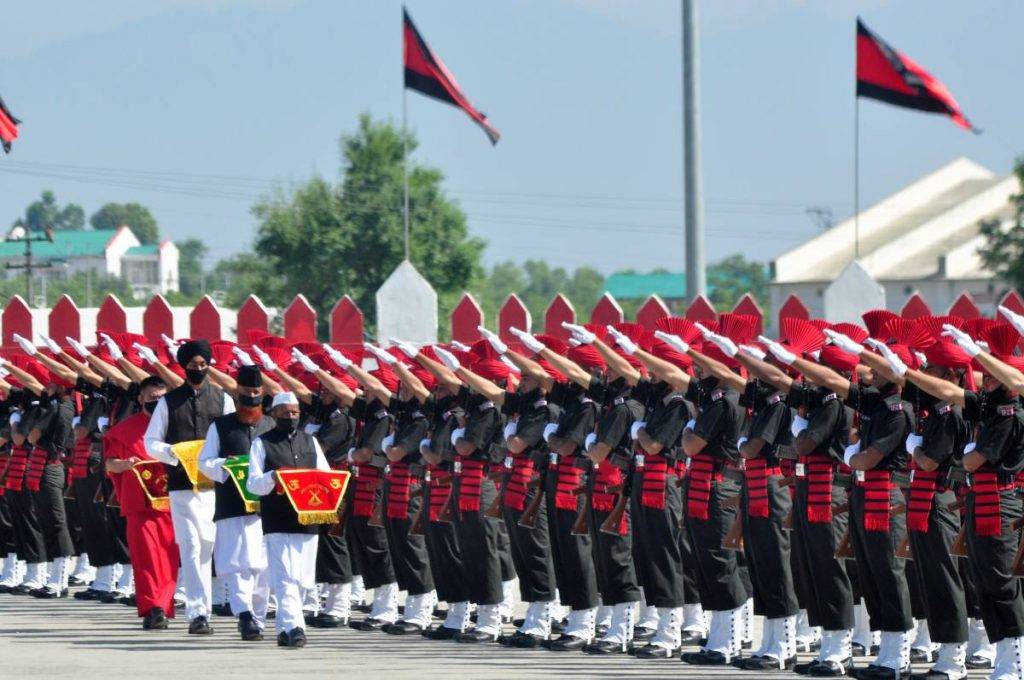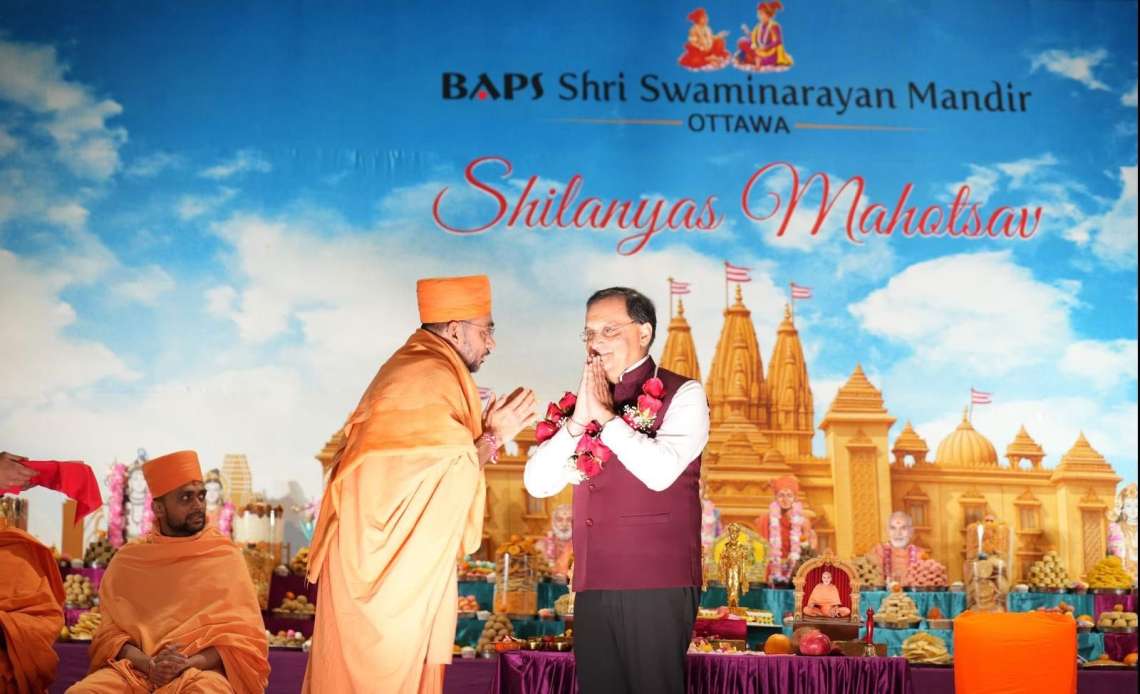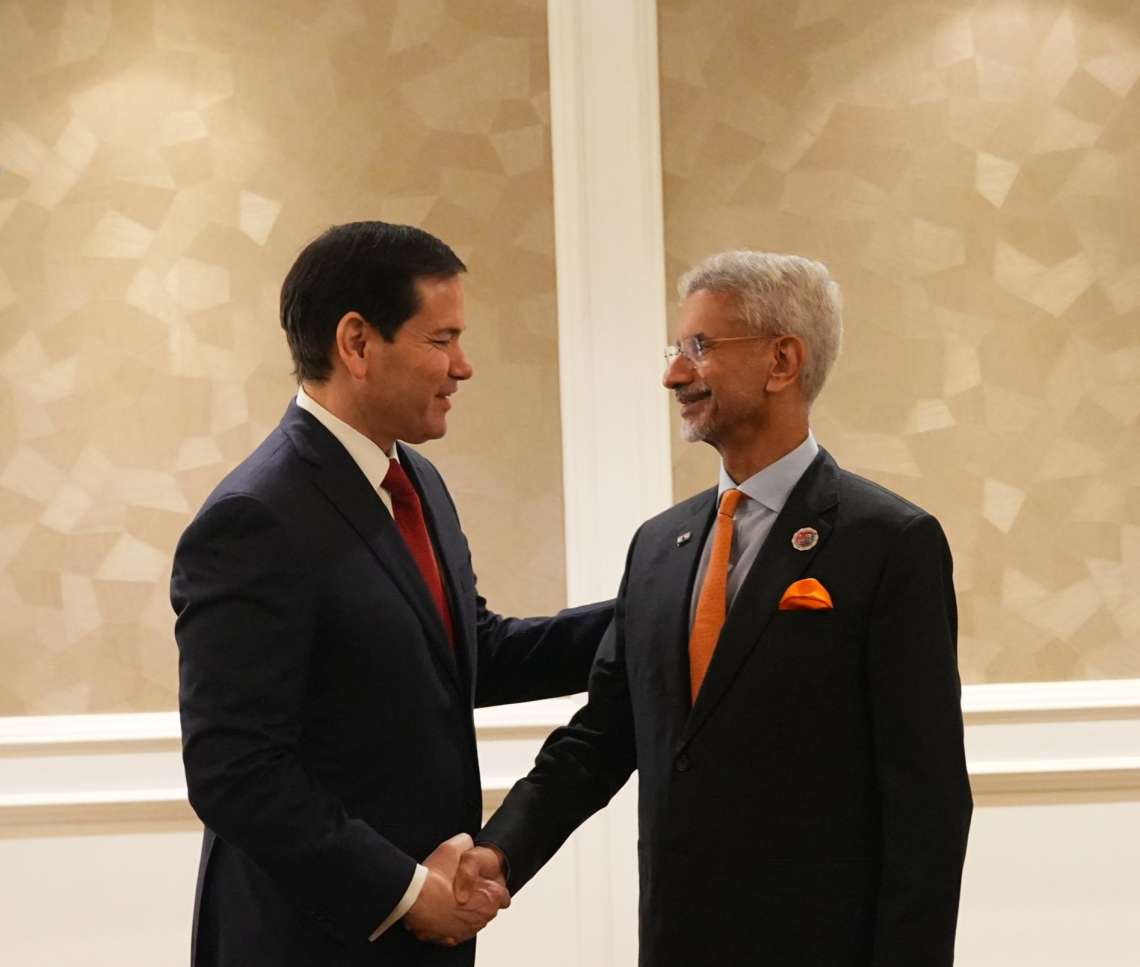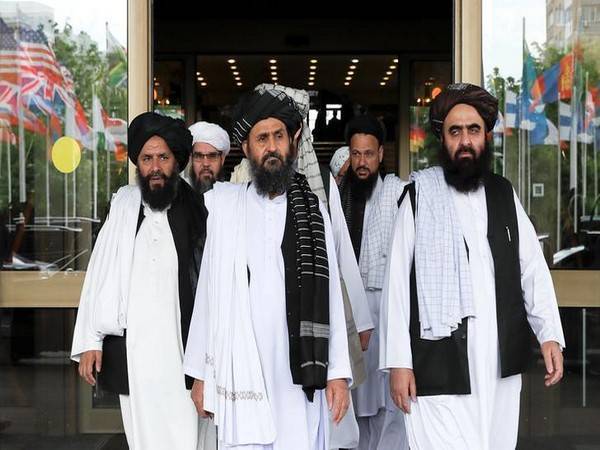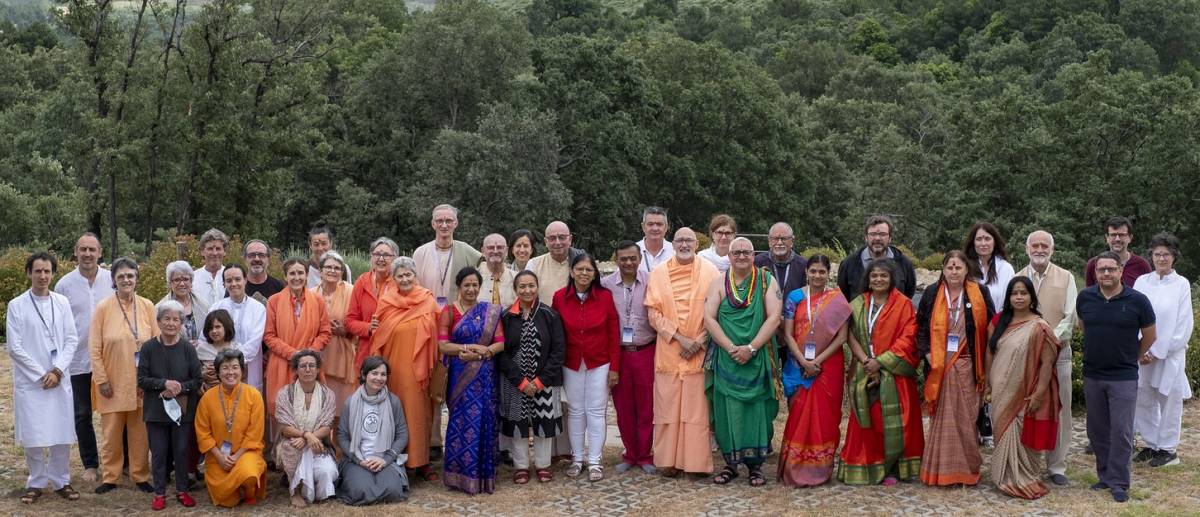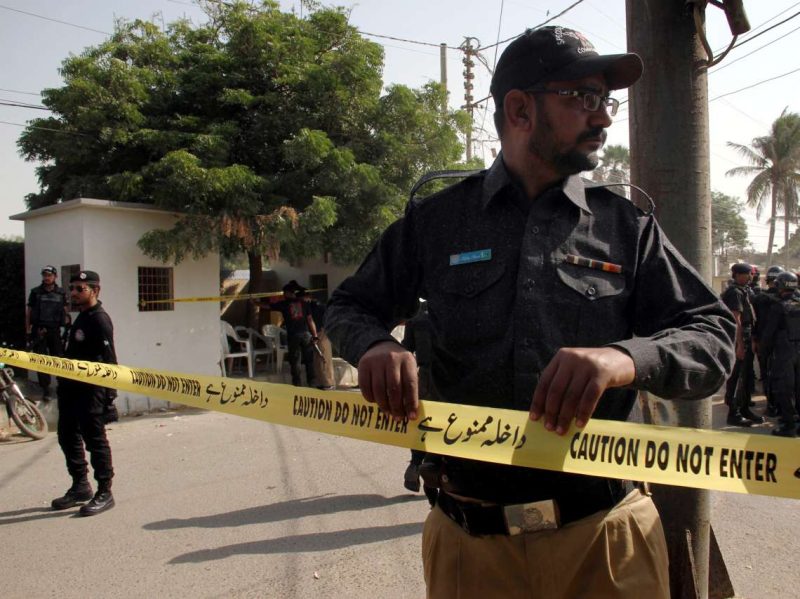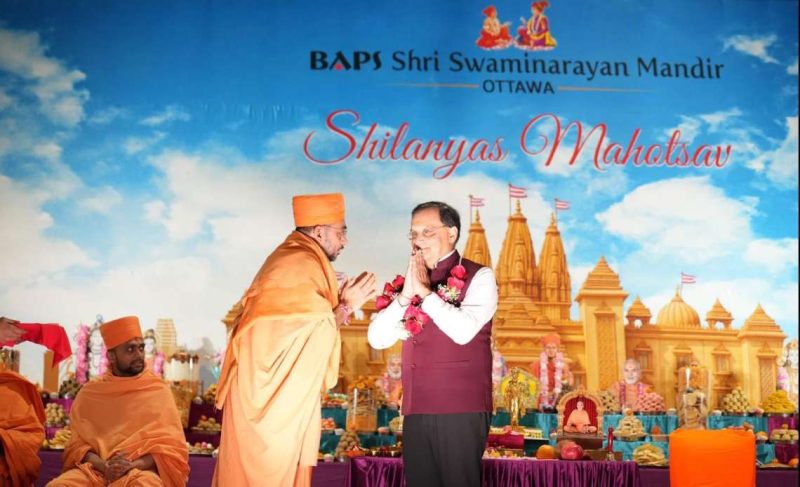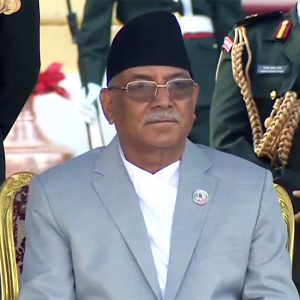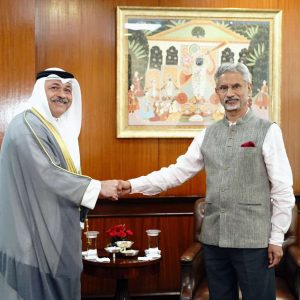The scheme, however, has been subject to some criticism as well. The argument that shorter duration service could compromise on training, morale and commitment does not hold any ground. In many modern armed forces around the world, the service period ranges from 2 to 8 years with options for active and reservist service….reports Asian Lite News
On June 14, Defence Minister Rajnath Singh, along with the chiefs of three armed forces, launched the ‘Agnipath’ scheme for the recruitment of youth in the armed forces. This scheme would give an opportunity to the youth of India to fulfil the dream of joining the Armed Forces and serving the nation. Agnipath scheme would allow the patriotic and motivated youth to serve in the armed forces for a short period of four-year. Those who get enrolled in the armed forces under this scheme would be called Agniveers. The Government has announced the recruitment of 46,000 Agniveers this year.
The Agnipath scheme is multi-pronged. It provides youth of India, not only the opportunity to fulfil their dream of joining the armed forces, give them the opportunity to serve the nation in varied terrain from mountains to desert, on land sea or air, but also will result in imbibing the military discipline, skill and physical fitness. The four year period in Defence forces would result in confident and better citizens by military training, team building ethos and camaraderie, a much needed qualities in today’s society.
An Agniveer would certainly stand out in the crowd. The Armed Forces on the other hand would benefit through transformative evolution with energetic, fitter, diverse, more trainable and resilient youth, suited to the changing dynamics. The Defence Forces would also get a wider talent pool for recruitment in the armed forces, from where the best could be selected with rigorous selection procedure.
The Agniveers would add the youthful profile to the Defence Forces by optimal balance of youth and experience. Candidates between 17.5 to 21 years of age meeting other educational, physical and medical criteria would largely be enrolled as Agniveers.
The scheme also aims to harness the skill India initiative by enrolling candidates qualified in ITI/Diploma holders in future with necessary skills for certain technical trades.
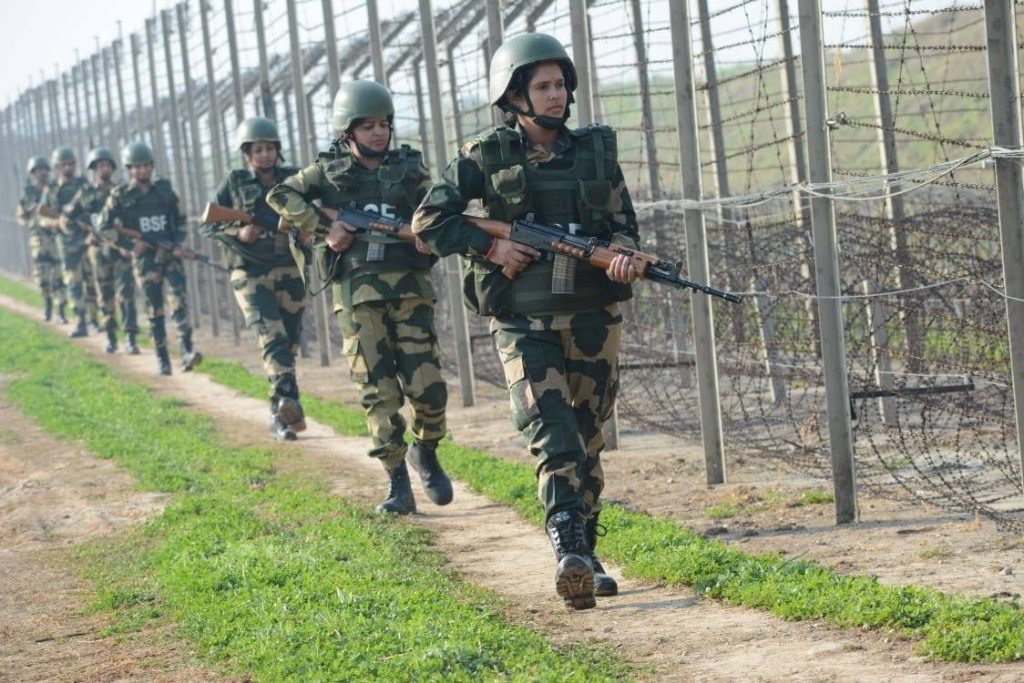
Terms and Conditions laid down for recruitment
Enrollment of the Agniveers will take place via a centralised online system for all three services with specialised rallies and campus interviews from recognized technical institutes such as Industrial Training Institutes and National Skills Qualifications Framework, among others. It will be based on an ‘All India All Class’ basis.
The eligible age will be between 17.5 years to 21 years. Agniveers have to pass required medical eligibility conditions as per the armed forces as applicable to respective categories/trades. The educational qualification for Agniveers will remain as in vogue for enrollment in various categories. For example, for entry into General Duty (GD) soldier, the educational qualification is Class 10.
Enrollment of Agniveers for JCO and other ranks
The Agniveers recruited under the scheme would form a distinct rank in the armed forces. It will be different from the existing ranks. Post four-year service, they will be offered an opportunity to apply for permanent enrolment in the Armed Forces. These applications will be considered in a centralised manner based on objective criteria, including performance during their four-year engagement period, and up to 25 per cent of each specific batch of Agniveers will be enrolled in the regular cadre of the Armed Forces. 100 per cent of candidates can apply on a volunteer basis to enrol in the regular cadre. They would be required to serve for a further engagement period of a minimum of 15 years and would be governed by the existing terms and conditions of the service of Junior Commissioned Officers/Other Ranks in Indian Army and their equivalent in Indian Navy and Indian Air Force and that of Non-Combatant enrolled in the Indian Air Force, as amended from time-to-time.
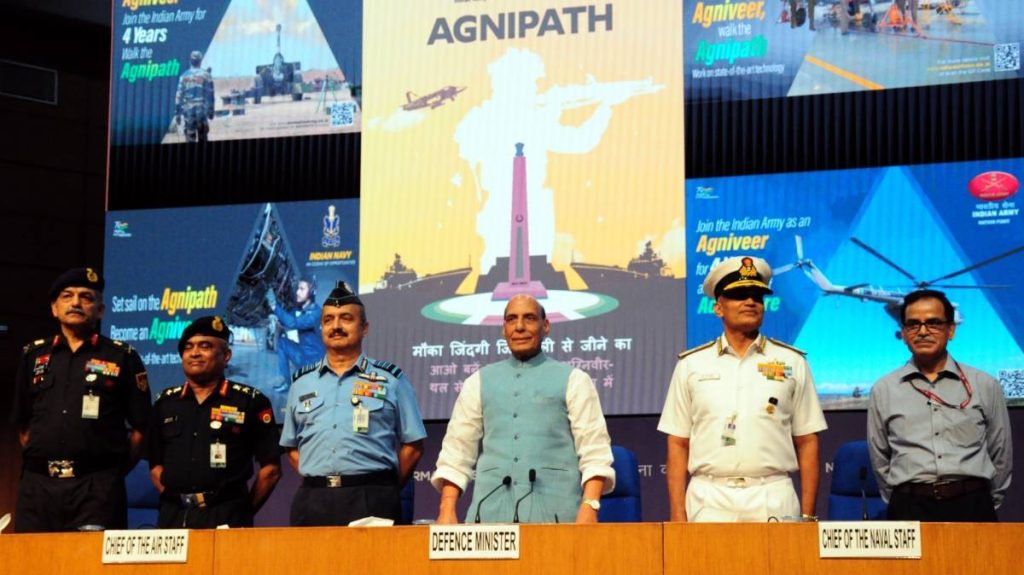
Benefits for the recruited
The Agniveers, will get attractive benefits that include a customised monthly package clubbed with risk and hardship allowances as applicable in the three services. After Agniveers complete four-year of service in the armed forces, they will get a one-time ‘SevaNidhi’ package that would comprise their contribution, including accrued interest thereon.
The Government will match the contribution from the accumulated amount of their contribution, including the interest. As per the press release, the contribution made by the recruits will be around Rs 5.02 lakh, which will be matched by the Government.
At the exit, Agniveers will get Rs 11.71 lakh as SevaNidhi fund. It is noteworthy that the amount paid to the Agniveers as SevaNidhi will be exempt from Income Tax. The ‘SevaNidhi’ would aid the Agniveer to pursue his/her future dreams without any financial pressure, which is normally the case for young people from the financially deprived strata of society. Apart from that, Agniveers will also get a non-contributory Life Insurance Cover of Rs 48 lakh for the duration of their engagement period in the Indian Armed Forces.
During the period of service, the recruits will learn various military skills, including discipline, physical fitness, leadership qualities, courage and patriotism. Post this stint of four-year, the Agniveers will be infused into the civil society where they can contribute immensely towards the nation-building process. The skills gained by each Agniveer will be recognised in a certificate to form part of his unique resume.
Views and Counterviews
Chief of the Army Staff Manoj Pandey, during the press conference revealed that the scheme is not a copy from the armed forces of other countries, but while formulating the recruitment structure under the Agnipath scheme, the recruitment model of Israel, USA, China, France, Russia, UK and Germany have been studied, and features modified and adapted as per the needs and requirements of the Indian Armed Forces. India is different from these countries, as it has a very young demographic profile. The Agnipath scheme aims to capitalize on the same and make the military a reflection of the demographic dividend of the nation.
The scheme, however, has been subject to some criticism as well. The argument that shorter duration service could compromise on training, morale and commitment does not hold any ground. In many modern armed forces around the world, the service period ranges from 2 to 8 years with options for active and reservist service.
The Israeli army has service of 30 months and 22 months respectively for men and women, yet enjoys a reputation for being among the best in the world. The US and the UK also have shorter duration contracts. France has short duration contracts of between one and 10 years depending on specialization. The training for Agniveers will be comparable to the timeframe in many world-class armed forces.
Fears that the Agnipath scheme will result in demobilized young soldiers posing a violent threat to society are also misplaced. Demobilized soldiers in their 30s regularly leave the army at the end of the mandated “colour service” and do not pose a threat to society. There is no reason to believe that those even younger with better skill-sets and motivation should act differently.
The Agnipath Scheme on the other hand supports the Government’s vision of Atmanirbhar Bharat. The Agniveers exiting the service would be a quality resource and could set up their own enterprise and business with government provided financial facilitation.
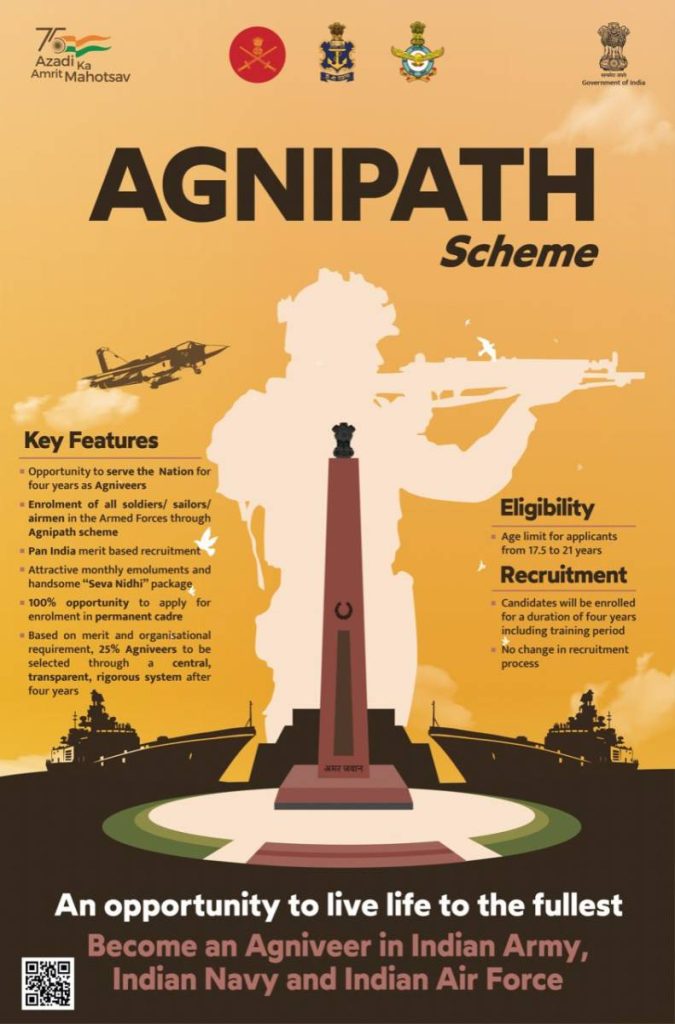
Need of the Hour
The scheme is definitely a watershed moment for the Indian society in general and the Indian Armed Forces in particular. It comes at a time when the society is facing the challenges of extreme views on caste, region and religion.
Indian Armed Forces being ‘apolitical’ and ‘a-religious’, a stint in the armed forces would not only inculcate a sense of discipline amongst the youth, but also ignite the sense of nationalism, nation above everything, a motto by which each armed force person lives. Armed Force personnel imbibe the ethos of Nation First, even when they do not broadcast their patriotism loudly, it resides within.
Such youth would contribute positively to building national character and social harmony. The four year stint in the Armed Forces would be like walking on the ‘Agnipath (Firepath)’. It would not only provide the opportunity to the youth to ‘Live a Life Less Ordinary’, it would also result in a disciplined, motivated and patriotic generation ‘Agniveers’ (Soldiers baptised by Fire), which is the need of the hour of the society.


